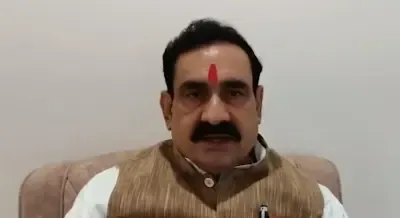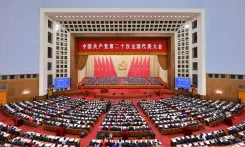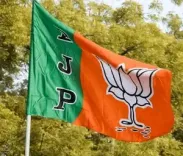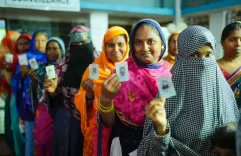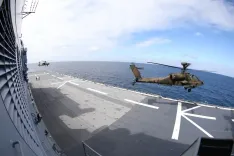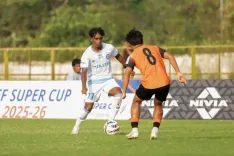Commemorating the 2014 APS Attack: Pakistan's Ongoing Battle Against Terrorism
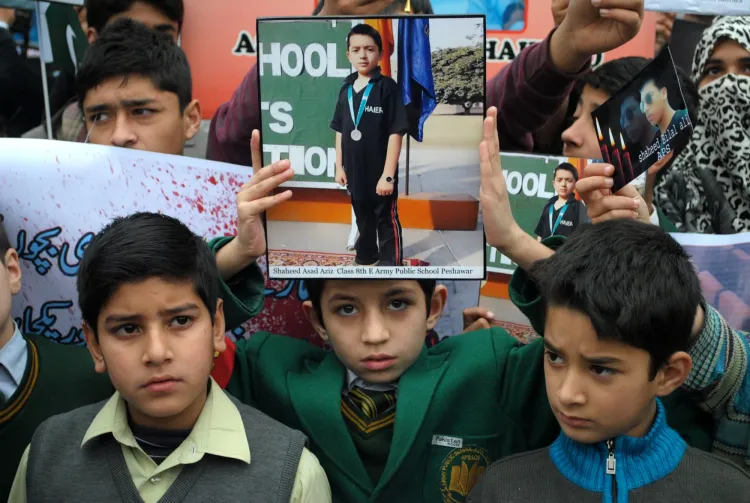
Islamabad, Dec 16 (NationPress) The morning of December 16, 2014, is permanently marked in Pakistan's history as one of its most tragic and somber days. A heinous terrorist attack on the Army Public School (APS) in Peshawar resulted in the brutal slaughter of approximately 150 students and teachers. This incident served as a critical juncture for the nation, prompting families of the victims and the general public to persistently question the actions of the leaders at that time. Regrettably, justice has remained out of reach.
As we approach December 16, 2024, we reflect on a decade since the harrowing and shocking events of the APS attack. The tragedy not only devastated Pakistan but also left the global community in disbelief. Alarmingly, even now, the inquiries and demands for justice continue to surpass the actions taken to eradicate the scourge of terrorism from the nation.
In the aftermath of the APS attack, Pakistan resolved to eliminate the distinction between 'good' and 'bad' Taliban, instituting a comprehensive all-out policy aimed at dismantling terrorist organizations such as the Tehreek-e-Taliban Pakistan (TTP), which claimed responsibility for the assault, along with other militant groups via a National Action Plan (NAP). Yet, a decade later, a crucial question lingers – what progress have we made?
Today, Pakistan mourns the victims of the APS attack. All educational institutions across the country have been closed, and rallies alongside special prayers are being organized to observe this somber occasion. Nonetheless, the fundamental question continues to plague the nation, as even after ten years, Pakistan still grapples with the challenge of eradicating terrorism, with daily attacks claiming lives.
According to strategic analyst Kamran Yousaf, "These terrorist factions have gained renewed strength since 2021, following the takeover of Afghanistan by the Afghan Taliban. Since that time, the TTP and its allied groups have received extensive support, enabling them to execute their attacks within Pakistan."
Yousaf further stated, "Although civilian casualties and attacks have diminished, the TTP and its affiliates have successfully infiltrated Pakistan, executing numerous operations against police and security forces. The TTP poses a direct threat to Pakistan's security as it seeks to act as Al-Qaeda's arm in the region."
While the Pakistani government asserts that the Afghan Taliban are arming, facilitating, sheltering, and supporting the TTP's ongoing terrorist activities, it is evident that the nation has not succeeded in eradicating the TTP's presence from its territory. Additionally, other extremist factions operating under the guise of sectarianism, which violently target different sects, continue to operate freely.
Senior analyst Azaz Syed remarked, "Terrorism should not be selectively identified. Whether it’s the TTP, Al-Qaeda, ISKP, or other groups inciting sectarian violence, arming sectarian factions to attack others, or exploiting blasphemy as a pretext to further their anti-state agendas – unless all these groups are neutralized, victory in this battle will remain unattainable."
As the nation reflects on the massacre at APS in 2014, the families of the deceased children and teachers continue to voice their demands for the prompt implementation of the NAP and justice for the victims of this brutality.
Senior political analyst Javed Siddique emphasized, "The state must fully commit to eradicating the menace of terrorism. Unfortunately, it seems more preoccupied with political maneuvering, influencing political parties, and their opposition, relegating counterterrorism to a lower priority on its agenda."
"If we wish to prevent a recurrence of the tragic APS attack now and in the future, the state must alter its approach," he concluded.




